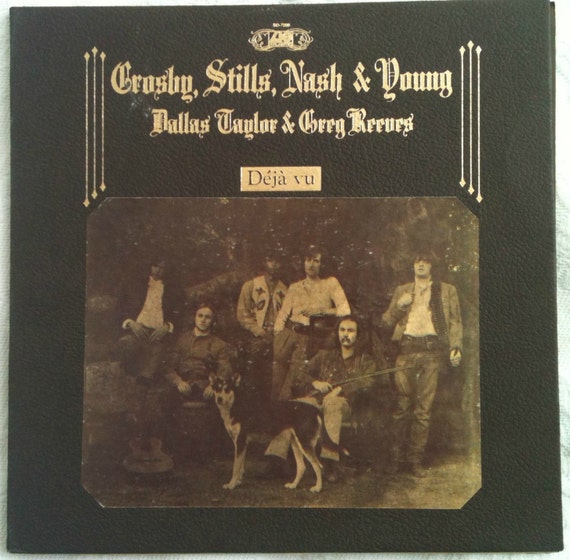

“Our House” is simply one of the prettiest songs ever written, on a par with any of Paul McCartney’s romantic confections (“I Will,” “When I’m Sixty-Four”). The title track weaves its familiar spell, and just as we’re convinced that the album couldn’t get any better, it does. The real Neil emerges on the opening moments of “Woodstock,” kicking up dust like a bantam rooster, and it’s here that you get an idea of what the first album might have sounded like had he been aboard. When Neil Young’s “Helpless” rolls around, we’ve already made the acquaintance of his cantankerous electric, so this disarming country song is met with a raised eyebrow. It’s really an anthem, marvelous because it questions its own motives for allegiance even as it praises the cause. We keep our guard down for “Almost Cut My Hair” only to discover that David Crosby has much more on his mind. Turn the page and you get the first of Graham Nash’s lovely fables, “Teach Your Children,” featuring the steel guitar of Jerry Garcia. The opening “Carry On” aligns with the multi-part “Suite: Judy Blue Eyes” in form, and perfectly sums up the contrast in styles between the two records: the harmonies are lower but no less beguiling, the music more informed by Santana than Simon & Garfunkel. Déjà Vu is one interesting chapter after another. And yet Neil Young isn’t the story here, just an interesting chapter in it. His voice adds a not unwelcome sourness to the choirboy harmonies of CS&N’s debut, his cranky guitar work pushes the band squarely into the rock half of the folk-rock movement. A heavier, earthier, more ragged record than their debut, the cause of which is called Neil Young.


 0 kommentar(er)
0 kommentar(er)
